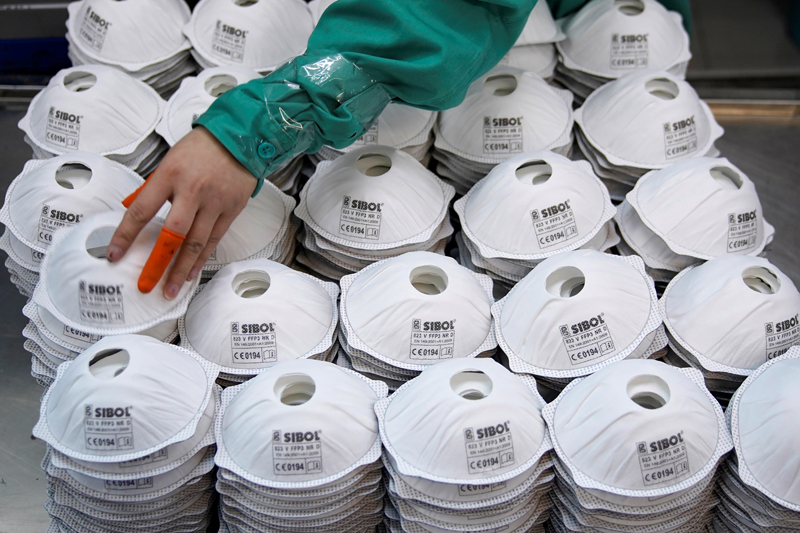40 firms fined for price gouging in mask sales
Kathmandu, March 17
The Department of Commerce, Supplies and Consumer Protection (DoCSCP) has taken action against 40 firms in last 15 days for price gouging in sales of masks and hiding masks which are considered to be essential gear for safety against coronavirus.
According to DoCSCP, the monitoring teams had inspected a total of 60 firms in Kathmandu valley over the past two weeks.
As per DoCSCP official Dhurba Khanal, out of 40 firms that were penalised, 13 are surgical suppliers and 14 are pharmacies. They were found to be selling masks at a higher price and lacking purchase receipts.
The surgical suppliers that were fined Rs 200,000 by DoCSCP for selling masks at a higher price are Nepal Care Surgical Supplier, Isaac Hospitech Support, Puri Surgical Equipment Supplier and Shuvam Health Care Products — all based in Chhetrapati.
Likewise, other surgical suppliers to pay the fine of Rs 200,000 are Shuba Surgical Supplier, Kupondole and Sadikshya Medical Hall in Jawalakhel.
Meanwhile, pharmacies which were fined Rs 200,000 are Aayush Pharmacy, Bidhya Alka Pharmacy, Gautam Pharmacy, Bharosa Pharmacy, Perlmart Pharma, Hamro Pratifal Pharma and Shree Ram Pharma.
According to Khanal, the aforementioned firms were found selling surgical masks at Rs 30 per piece, while N95 masks were being sold for Rs 400 a piece. The retail price of surgical masks in normal times stand at five rupees per piece, while N95 masks are sold at Rs 90 per piece.
Amid this, the department has also charged nine grocery shops, including a few department stores and marts, for hiding and charging higher prices for liquefied petroleum gas (LPG). Similarly, one grocery shop located in Dhapasi has been charged for selling expired food items.
According to the department, it has collected a total of Rs 3.1 million in fines from the wrongdoers, while it destroyed expired food items worth Rs 22,500 over the last 15 days.
As the coronavirus outbreak started spreading globally, traders and suppliers in the country had started selling masks at higher prices and were also hiding masks in stock to create an artificial shortage. Traders had also started hiding LPG cylinders and other essential food items.






